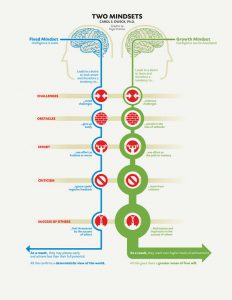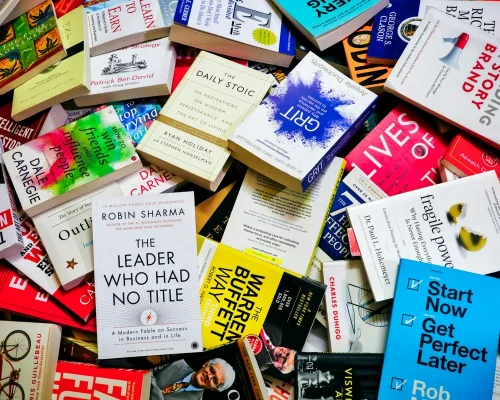Do you ever wonder why some people seemingly thrive where others falter? The answer, often, lies not in talent or circumstance, but in a fundamental belief system: mindset. Whether we realize it or not, our core convictions about intelligence, abilities, and potential shape our experiences and outcomes.
In her groundbreaking book, Mindset: The New Psychology of Success, Carol Dweck identifies two distinct mindsets – growth and fixed – that dictate how we approach challenges, setbacks, and ultimately, life itself. Today, we characterize the different types of mindset and their implications on life and productivity.
Differentiating The Two Types of Mindsets
Creative Ability
Hard goals notwithstanding, a person with a growth mindset believes that abilities improve by practice while a person with a fixed mindset thinks it is innate.
While someone with a growth mindset easily embraces the challenge of a new task or a new skill, one with a fixed mindset concludes he can’t learn simply because it proves difficult to learn at the start.
Challenges and Obstacles
A growth mindset embraces challenges and works hard to improve at the tasks. Instead of challenges, a fixed mindset chooses the easier option, believing that success is impossible at the hard.
In a similar vein, while a growth mindset seeks obstacles as a chance to experiment, and solve problems and thus gives no excuse, a fixed mindset is likely to give up when faced with obstacles.
Concept of failure and risk
Someone with a growth mindset sees failure as a chance to learn and pivot to success. If failure gets to you, or you allow yourself to be labelled by it, your mindset is fixed.
People with a mindset for growth see risks as opportunities for innovation and continual improvement. Those whose mindsets are fixed are less likely to take creative risks and instead focus on measurable accomplishments.
Critical feedback
While most people agree feedback is necessary, not everyone appreciates critical feedback. You’ll see critical feedback as a chance to improve and develop if you have a growth mindset. Otherwise, you’ll see it as a personal attack on your project and person.
Growth Mindset or Fixed Mindset?

In the end, what is interesting is that regardless of the mindset you have, you’re right. If you think all you are is all you can be, you are right but if you think there’s still a chance for you to forge ahead, you will also be correct. Invariably, you cannot rise above the definitions you have given to life; things become what you call them.
Again, it’s important to remember that the two mindsets aren’t rigid categories. We all possess elements of both, and depending on the situation, our mindset might fluctuate. The key lies in cultivating a predominantly growth mindset. That way, you can continue to forge ahead, through thick and thin, conquering your goals one step at a time.
Your Choice
Choosing a growth mindset is not about ignoring reality or minimizing personal struggles. It’s about adopting a belief system that empowers you to learn, grow, and rise above limitations. The path ahead may be filled with challenges, but with a growth mindset as your compass, you can navigate them with resilience, optimism, and unwavering belief in your limitless potential.
So, today, choose growth. Choose to learn, to evolve, and to conquer your goals one step at a time. Remember, you are not defined by your present circumstances but by the unwavering belief in your ability to grow and become.
(P.S: There’s an interactive quiz by the London Academy of IT to determine if you have a fixed or growth mindset. Find it here.)


4 thoughts on “Growth mindset or Fixed mindset?”
Thank You Sir
Thank you for reading.
Thank you sir for this and also for the link to the quiz!
Thank you for reading. What did the quiz reveal? 🙂